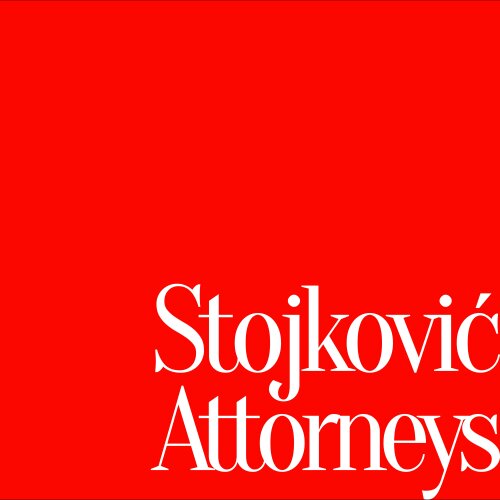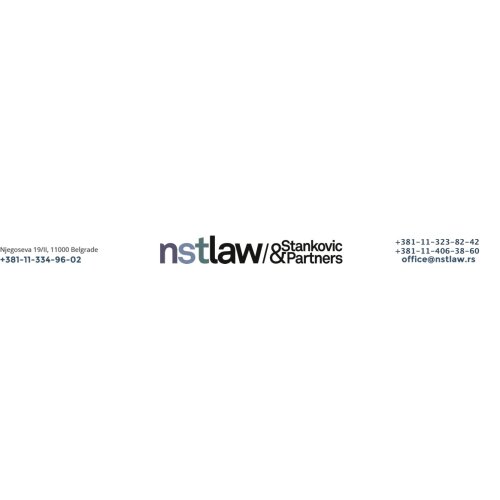Best Creditor Lawyers in Serbia
Share your needs with us, get contacted by law firms.
Free. Takes 2 min.
Or refine your search by selecting a city:
List of the best lawyers in Serbia
About Creditor Law in Serbia
Creditor law in Serbia deals with the rights and obligations of creditors in the context of financial transactions and debt collection. It encompasses a range of legal processes from securing debts to executing claims in court. In Serbia, creditor laws are designed to protect the interests of both creditors and debtors by ensuring fair practices in lending and borrowing activities. Creditors must navigate various legislative frameworks, including the Law on Obligations, Bankruptcy Law, and Enforcement and Security Acts.
Why You May Need a Lawyer
Engaging a lawyer specializing in creditor law can be crucial in several scenarios. If you are a creditor facing non-payment issues, you may require legal assistance to initiate debt recovery proceedings or to secure claims against a debtor's assets. Additionally, businesses seeking to establish credit policies or individuals involved in complex lending agreements might benefit from legal guidance to ensure compliance with local regulations and avoid potential disputes. A lawyer can also assist in navigating the bankruptcy proceedings when a debtor declares insolvency.
Local Laws Overview
Key aspects of creditor laws in Serbia include:
- Law on Obligations: Governs contractual relationships and sets standards for payments and obligations among parties.
- Bankruptcy Law: Provides the legal framework for collective creditor settlements if a debtor is unable to satisfy its debts.
- Enforcement and Security Act: Outlines the procedures for enforcing claims and securing interests, detailing the rights and remedies available to creditors.
- Laws on Secured Transactions: Regulates the use of collateral in securing debts, allowing creditors certain rights over the debtor’s assets in cases of default.
Understanding these laws is crucial for creditors to protect their financial interests effectively and comply with legal processes in debt recovery and credit management.
Frequently Asked Questions
What legal steps can I take if a debtor defaults on a payment?
A creditor can initiate legal enforcement proceedings through the courts to recover the owed amount. This often involves securing a court order for debt collection and may include seizing the debtor's assets if necessary.
How does the bankruptcy process affect creditors in Serbia?
In bankruptcy, creditors may file claims against the debtor's estate and participate in the distribution of assets. Serbian bankruptcy law prioritizes creditors based on secured and unsecured status, influencing how they are paid.
What are the different types of creditor rights in Serbia?
Creditors have various rights, such as the right to interest on overdue payments, the right to sue for breach of contract, and the right to enforce claims under secured transactions.
Can a creditor be prioritized over others in debt recovery?
Yes, secured creditors have priority over unsecured creditors due to the collateral backing their claims. The order of priority in debt recovery is typically determined by the type and order of claims.
Is court action always necessary for debt recovery?
Not always. Creditors can pursue alternative dispute resolution methods such as mediation or arbitration, which can be quicker and more cost-effective than court proceedings.
What is the statute of limitations for debt collection in Serbia?
The statute of limitations varies depending on the type of debt. Generally, contractual debt claims must be made within three years from the due date, but this can differ based on specific circumstances.
Can non-payment affect a debtor's personal credit in Serbia?
Yes. Persistent non-payment can lead to negative records in the credit agency reports, affecting the debtor's creditworthiness and future borrowing capacity.
How do I secure a loan using collateral?
Creditors need to ensure a proper collateral agreement outlining the terms and registering it under the appropriate registry according to the Laws on Secured Transactions.
What can I do if a debtor challenges the debt validity?
If a debtor disputes the validity of the debt, the creditor might need to provide documentation and evidence to substantiate the claim in court or during arbitration.
Can foreign creditors enforce claims in Serbia?
Foreign creditors can enforce claims, but they must adhere to Serbian enforcement procedures and possibly retain legal representation familiar with local law.
Additional Resources
For further assistance, individuals may contact:
- The Serbian Bar Association for lawyer referrals.
- The Serbian Chamber of Commerce for resources on business credits and disputes.
- The National Bank of Serbia for financial compliance and regulations.
Next Steps
If you need legal assistance in creditor matters, consider the following steps:
- Evaluate your situation to determine the specific legal help you need.
- Contact a qualified lawyer with expertise in creditor law in Serbia.
- Prepare all relevant documents and correspondence related to the issue.
- Consider alternative dispute resolutions if suitable for your situation.
- Stay informed about your rights and obligations under Serbian law to protect your interests effectively.
Lawzana helps you find the best lawyers and law firms in Serbia through a curated and pre-screened list of qualified legal professionals. Our platform offers rankings and detailed profiles of attorneys and law firms, allowing you to compare based on practice areas, including Creditor, experience, and client feedback.
Each profile includes a description of the firm's areas of practice, client reviews, team members and partners, year of establishment, spoken languages, office locations, contact information, social media presence, and any published articles or resources. Most firms on our platform speak English and are experienced in both local and international legal matters.
Get a quote from top-rated law firms in Serbia — quickly, securely, and without unnecessary hassle.
Disclaimer:
The information provided on this page is for general informational purposes only and does not constitute legal advice. While we strive to ensure the accuracy and relevance of the content, legal information may change over time, and interpretations of the law can vary. You should always consult with a qualified legal professional for advice specific to your situation.
We disclaim all liability for actions taken or not taken based on the content of this page. If you believe any information is incorrect or outdated, please contact us, and we will review and update it where appropriate.
Browse creditor law firms by city in Serbia
Refine your search by selecting a city.

















